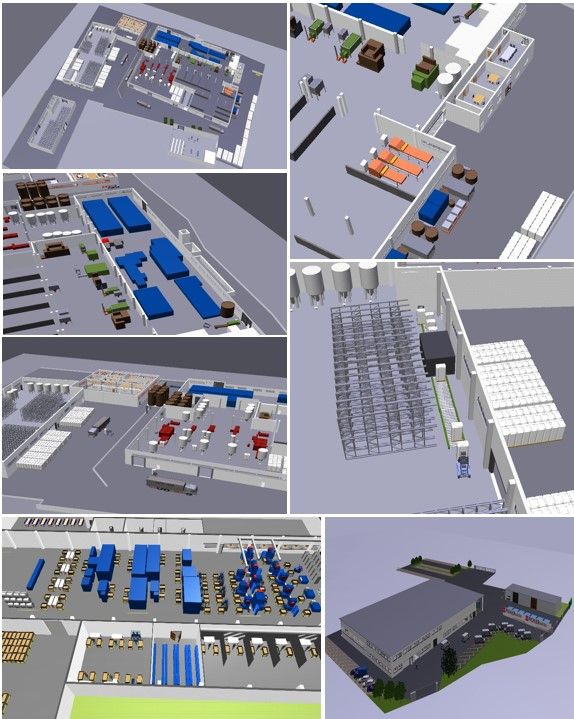Relocation of production

Relocation of production refers to the strategic step taken by a company to move parts of production to another location.
This can have various reasons: cost savings through cheaper wages, tax advantages, better infrastructure or proximity to new markets. Careful planning is crucial in order to minimize possible risks such as loss of quality, longer delivery times or cultural differences. If implemented successfully, relocating production can strengthen competitiveness and promote long-term growth of the company.

Walter Meitz
Your contact for all questions, references, process, etc.
Walter Meitz
+43 664 654 06 79
This email address is stez protected from spambots. You need javaScript Enabled to view it.
Are you looking for a service provider who can professionally implement your production relocation projects?
The IQX GROUP is the ideal partner when it comes to the successful planning and implementation of production relocations. Our expertise is based on years of experience in the industry, combined with a deep understanding of the complex challenges and opportunities associated with such a strategic decision. Here are some reasons why we, as an external service provider, are the optimal choice for your production relocation:
Holistic approach and tailor-made solutions
Every production relocation is unique. We do not offer standard solutions, but rather develop individual strategies that are tailored to the specific requirements of your company and the industry. From location analysis to cost-benefit analysis to logistical implementation – we cover all relevant aspects to ensure a seamless relocation.
Reducing risks through in-depth expertise
Relocating production often involves risks, from quality issues to unexpected logistical challenges. The IQX GROUP has in-depth know-how in risk minimization. Our experts identify potential obstacles early and develop proactive measures to avoid delays and costly mistakes.
Optimal use of resources and increased efficiency
By relocating production, companies can not only save costs, but also optimize their production processes. We support you in organizing the relocation so that you benefit from maximum efficiency. Our team analyzes your existing production processes and suggests improvements that will have a long-term impact on productivity and profitability.
international experience and global networks
As an internationally operating service provider, the IQX GROUP has a comprehensive network of partners and resources worldwide. Whether it is the development of low-cost countries or the relocation to markets with specific tax or logistical advantages - we know the local conditions and have the necessary contacts to accelerate the relocation process and make it cost-efficient.
Transparency and clear communication
We attach great importance to transparent and open communication throughout the entire process. We accompany you step by step, keep you informed of every progress and ensure that all decisions are made in accordance with your company goals.
Focus on sustainability and future viability
In times of increasing environmental regulations and the demand for sustainable business, we at the IQX GROUP are always thinking one step further. Our production relocation strategies consider not only short-term cost advantages, but also long-term sustainability and adaptability to future market requirements. This ensures that your production remains future-proof and competitive even in the new environment.
With the IQX GROUP at your side, you benefit from an experienced, reliable and solution-oriented partner who will help you fully exploit the potential of relocating production. Our proven methods and our customer-specific approach guarantee a smooth implementation that sustainably strengthens your company.
Phases of a production relocation
During the planning phase, the decision to relocate production is thoroughly examined. The reasons for the relocation are identified here, such as cost optimization, market adjustments or the need to expand capacity. Important steps in this phase are:
- Location analysis : Evaluation of potential locations based on costs, availability of skilled workers, infrastructure and political conditions.
- Cost-effectiveness calculation : Creating a business case that shows all costs and savings potential.
- Risk assessment : Analysis of potential risks, such as supply chain disruptions, quality issues or cultural differences.
In this phase, the production processes are developed or adapted for the new location. It's about ensuring that production capacities meet the company's needs. The most important aspects are:
- Process design : Optimization of production processes for the new location.
- Equipment planning : Decision about relocating or purchasing new machines and systems.
- Quality standards : Ensure that the same or higher quality standards are maintained at the new location.
Before the full relocation takes place, it is advisable to carry out test runs at the new location. This phase helps identify potential problems early and make adjustments. The steps include:
- Test production : Small production runs to check machine performance and process stability.
- Employee training : Training new staff to ensure they are familiar with production processes and technology.
- Adjustments : Optimization of processes based on the results of the test runs.
The actual relocation of production takes place in this phase. Close coordination is required here to minimize downtime and ensure the smooth integration of the new location. Important points are:
- Transport and installation : Relocation of machines and equipment to the new location.
- Supply chain integration : Adjusting supply chains to ensure supply to the new location.
- Production at the new location : Full production capacity started after successful completion of the test runs.
After the relocation, it is important to continuously monitor and optimize operations at the new location. The aim here is to maximize efficiency and resolve potential problems early:
- Quality Controls : Ensuring that production quality meets the expected standard.
- Performance monitoring : Continuous review of production performance against targets.
- Continuous improvement : Adjustments and optimizations based on the data and experiences collected.
Required social skills of a relocation manager
One of the most fundamental skills is clear and effective communication. The production relocation manager must be able to communicate information between different teams, departments and hierarchy levels. This includes:
- Transparent communication : Clear communication of project goals, expectations and progress.
- Adaptability : The ability to adapt communication depending on the recipient, whether they are management, technical staff or external partners.
- Active listening : Open ears to feedback and concerns from the employees involved in order to avoid misunderstandings and find early solutions.
Relocation projects can often be associated with uncertainty and stress for the employees affected. An empathetic manager understands and addresses the emotional and psychological challenges the team faces:
- Understanding concerns : Acknowledging that employees may have concerns about changes such as relocating production and actively listening to them.
- Promote a positive working atmosphere : Strengthen team spirit and build trust to make the transition as smooth as possible.
A production relocation manager must be able to lead, motivate and focus a cross-functional team on the common goal. Leadership skills are crucial here:
- Motivation : Motivate employees through goal setting and recognition, especially when the project is challenging or lengthy.
- Delegation : Distribute tasks effectively by recognizing and leveraging the strengths of each team member.
- Conflict management : Identify conflicts or misunderstandings in the team at an early stage and resolve them constructively.
When relocating production internationally, it is important to understand intercultural differences and deal with them respectfully. The manager should:
- Cultural awareness : Understanding of different work styles, communication methods and behaviors in other countries and cultures.
- Respect and tolerance : Be sensitive to cultural differences to promote cooperation and mutual trust.
Production relocation projects often bring with them unforeseeable challenges. A manager must think creatively and solution-oriented:
- Critical Thinking : Ability to approach problems analytically and quickly find workable solutions.
- Decisiveness : Make quick and well-founded decisions in difficult situations to ensure project progress.
Relocating production is often associated with great pressure. The manager must remain calm and able to act even under stress:
- Resilience : Dealing with stress and deadlines without compromising your effectiveness or the team.
- Flexibility : Ability to adapt to changing circumstances, especially when faced with unforeseen challenges.
In a production relocation project, there are often numerous interest groups, such as suppliers, customers and authorities, with whom negotiations must be carried out:
- Assertiveness : Conduct clear and fair negotiations to achieve the best conditions for the company.
- Willingness to compromise : Find solutions that are acceptable to everyone involved without jeopardizing the project goals.